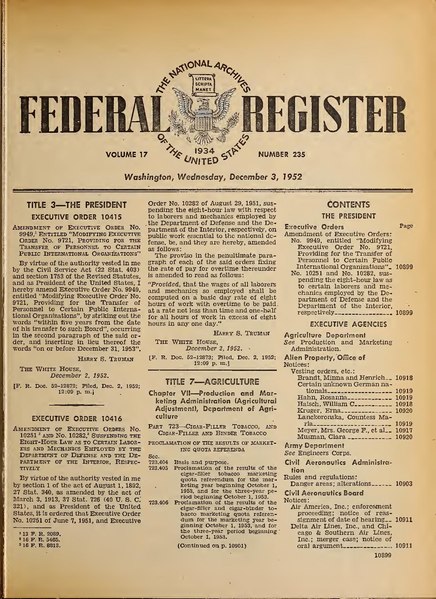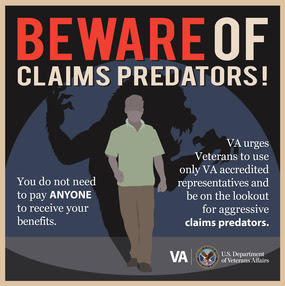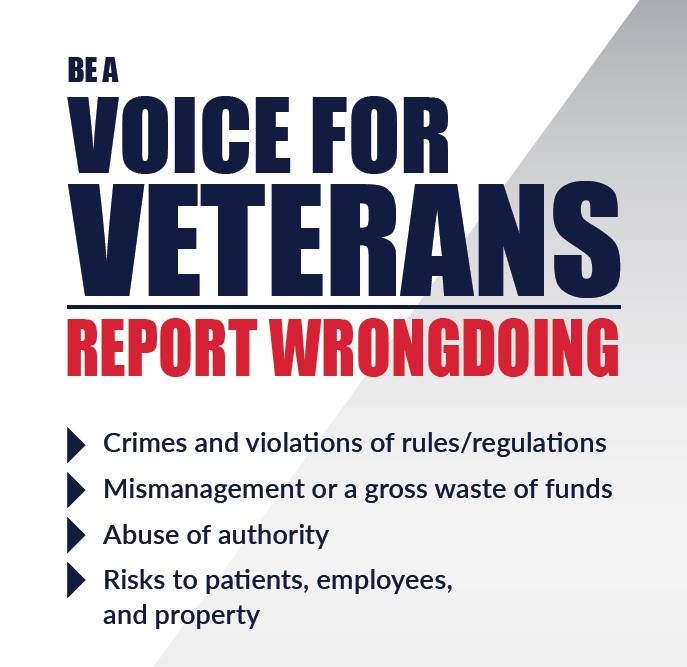- Home
- Stay Current
- Updates
PTSD Exams Updates
Brief news items of interest, and notice of new PTSDexams.net articles. → You can subscribe to these updates via RSS or email.
Apr 29, 2025
Concurrent Validity Evidence for MMPI-3 Over- and Under-reporting Scales
CITATION
Holmes, K. F., Whitman, M. R., Gervais, R. O., & Ben-Porath, Y. S. (2025). Do MMPI-3 validity scale findings generalize to concurrently administered measures? Validation with a forensic disability sample. Archives of Clinical Neuropsychology, 40(2), 224–244. [Available on Research Gate with login. See the "Continue reading" link at the bottom for the journal listing.]
ABSTRACT
Objective: Research has demonstrated that over-reporting and under-reporting, when detected by the MMPI-2-RF Validity Scales, generalize to responses to other self-report measures. The purpose of this study was to investigate whether the same is true for the Minnesota Multiphasic Personality Inventory–3 (MMPI-3) Validity Scales. We examined the generalizability of over-reporting and under-reporting detected by MMPI-3 Validity Scales to extra-test self-report, performance-based, and performance validity measures.
Method: The sample included 665 majority White, male disability claimants who, in addition to the MMPI-3, were administered several self-report measures, some with embedded symptom validity tests (SVTs), performance-based measures, and performance validity tests (PVTs). Three groups were identified based on MMPI-3 Validity Scale scores as over-reporting (n = 276), under-reporting (n = 100), or scoring within normal limits (WNL; n = 289).
Results: Over-reporting on the MMPI-3 generalized to symptom over-reporting on concurrently administered self-report measures of psychopathology and was associated with evidence of over-reporting from other embedded SVTs.
It was also associated with poorer performance on concurrently administered measures of cognitive functioning and PVTs.
Under-reporting on the MMPI-3 generalized to symptom minimization on collateral measures of psychopathology.
Conclusions: MMPI-3 Validity Scales can identify possible over- and under-reporting on concurrently administered measures. This can be of particular value when such measures lack validity indicators.
[Note: Slightly edited for brevity; line breaks and emphasis added to improve online readability.]
Continue reading "Concurrent Validity Evidence for MMPI-3 Over- and Under-reporting Scales"
Apr 22, 2025
Patterns of MMPI-2-RF validity scale scores in a VA assessment clinic - the impact of compensation status
Diehl, K. J., Ingram, P. B., Pagano, L. A., & Gideon, H. J. (2025). Patterns of Minnesota Multiphasic Personality Inventory-2-Restructured Form (MMPI-2-RF) validity scale elevation across veterans seen in a Veterans Affairs (VA) assessment clinic: The impact of compensation status. Psychological services. Advance online publication. [PDF available on Research Gate after login. See the "Continue reading" link at the bottom for the journal listing.]
ABSTRACT
The purpose of this investigation is to provide descriptive information on veteran response styles for compensation and pension (C&P) evaluations Veterans Affairs (VA) referral types using the Minnesota Multiphasic Personality Inventory–2–Restructured Form (MMPI-2-RF), which has well-supported embedded validity scales capturing invalid response styles.
The total sample included 356 veterans from a single VA psychological testing clinic who were administered the MMPI-2-RF during a broader psychological evaluation, with 201 veterans undergoing C&P evaluations [56.5%].
This study examines frequencies of protocol invalidity based on the MMPI-2-RF’s validity scales and provides comprehensive descriptive findings on validity scale scores across appointment types (i.e., C&P and non-C&P). Three distinct trends emerged:
(1) Veterans generally produced valid MMPI-2-RF profiles,
(2) when more than one elevation emerges, it is likely to be thematically consistent (e.g., overreporting scales), and
(3) overreporting generally captured the highest frequency of validity scale elevations relative to underreporting or noncontent-based invalid responding.
Implications and limitations for practice and the utility of the MMPI-2-RF within VA testing clinics are discussed.
QUOTE from article:
Observed elevation rates differ in their frequency between C&P and non-C&P focused evaluations; however, these differences were relatively small in effect and unlikely to cause major variations in test taking approach with respect to needed cut scores.
One potential reason for a lack of difference between these two groups in score performance, given the generally similar scores and discrepant referral reasons, is the enmeshment of disability processes with routine care within the VA (see Worthen & Moering, 2011).
Thus, despite small effects magnitudes, the inherent forensic enmeshment of C&P evaluations remains critical to consider during service provision (Ray, 2017), and inclusion of multiple sources of performance and symptom validity testing to support diagnostic or clinical decision making remains necessary (see Sweet et al., 2021).
[Note: Slightly edited for brevity; line breaks and emphasis added to improve online readability.]
Apr 15, 2025
30% Rule for PVT & SVT Interpretation
Gerald Young et al., Malingering-Related Assessments in Psychological Injury: Performance Validity Tests (PVTs), Symptom Validity Tests (SVTs), and Invalid Response Set, 18 Psʏᴄʜ. Iɴᴊ. & L. 19 (2025), https://doi.org/10.1007/s12207-024-09523-6
Abstract
The field of psychological injury and law is marked by use of psychometrically sound validity tests that use empirically derived cut scores to determine the credibility of cognitive deficits and psychological symptoms in forensic and related disability assessments (FDRA).
Performance validity tests (PVTs) are used in neuropsychological/cognitive assessments to determine the extent to which test scores reflect true ability levels.
Symptom validity tests (SVTs) are designed to evaluate the credibility of self-reported level of excessive report in behaviors, emotions, and thoughts. They monitor the rate of endorsement of rare, absurd, impossible, and improbable symptoms.
The authors argue for a 30% rule as a tentative multivariate threshold for invalid presentation (with provisos). In other words, failure on about one third of the PVTs/SVTs administered should be required before deeming the overall profile non-credible to control for the threat of inflated false positive error due to the increasing number of instruments used.
Typically, workers in the field use the multivariate threshold of ≥ 2 PVT failures in FDRA [forensic and related disability assessments] to deem an entire profile invalid, without considering the number of tests administered.
The proposed 30% rule accommodates this face validity question. It is tentatively proposed as a starting point for future research, and with sufficient empirical support, a general guideline for FDRA [forensic and related disability assessments] (emphasis added).
Apr 07, 2025
Vets with Comorbid Psych Disorders and Sexual Harassment-related Claims Significantly Less Likely to Receive Service Connection for PTSD
Aliya R. Webermann et al., Association of Psychiatric Diagnoses and Military Sexual Trauma Type with Denied Posttraumatic Stress Disorder Service Connection, 381 J. Aғғᴇᴄᴛ. Dɪsᴏʀᴅ. 69 (2025), https://doi.org/10.1016/j.jad.2025.03.171
ABSTRACT
Background: Annually, thousands of Veterans file Department of Veterans Affairs' (VA) disability claims (“service connection”) for posttraumatic stress disorder (PTSD) related to military sexual trauma (MST). Service connection provides free covered healthcare and compensation. To qualify, Veterans must meet PTSD diagnostic criteria, have sufficient evidence of the MST, and establish a link between their PTSD symptoms and MST.
Methods: Among VA-enrolled Veterans who filed for MST-related PTSD service connection between 2017 and 2022 (N = 19,509), we modeled the probability of denied PTSD service connection as a function of MST type (i.e., assault versus harassment) and any instance of a psychiatric diagnosis in the VA electronic health record prior to PTSD claim decision, while controlling for demographics, PTSD diagnosis, and VA MST screen.
Results: Veterans with sexual harassment claims had 2.86 times (d = 0.37) higher odds of being denied (42.7 %) compared to those with sexual assault claims (20.7 %). Diagnoses of personality disorders, anxiety disorders, substance use disorders, bipolar disorders, and schizophrenia spectrum disorders were associated with increased odds of PTSD claims being denied (OR = 1.20–2.01).
Limitations: While the full population of Veterans filing MST claims during this timeframe, the sample included relatively few harassment-only claims and was limited to demographic information in VA records, possibly resulting in overlooked confounders or determinants.
Conclusion: Skilled claims assistance and equitable evidentiary requirements for MST-related PTSD claims compared to PTSD claims not related to MST, and for any trauma claims for a non-PTSD diagnosis (e.g., anxiety or depression) may reduce disparities in service connection.
Oct 09, 2024
CAPS-5-R, Equitable Exams for Women
Structured diagnostic interviews lead to more reliable (dependable, consistent) and valid (accurate) diagnoses compared to free-form (unstructured) interviews.
When used during VA compensation and pension examinations (C&P exams) for PTSD and other mental disorders, resulting exam conclusions are more accurate, which in turn leads to more equitable (fair) disability determination decisions by the Veterans Benefits Administration (VBA).
However, some experienced psychological C&P examiners have expressed understandable dissatisfaction with certain aspects of the Clinician-Administered PTSD Scale for DSM-5 (CAPS-5).
Apparently the scale's developers and other research psychologists have paid attention to your concerns! They undertook a concerted effort to improve the CAPS-5 to make it more user friendly (for examiners and the person being interviewed), to improve accuracy, and to provide a more granular analysis of symptom severity.
Recent research demonstrates good reliability and validity for the newly revised version of the Clinician-Administered PTSD Scale for DSM-5. The CAPS-5-R has not been published yet, but I anticipate you will see it in 2025.
Presumably, VA examiners will still be able to download the instrument for free from the National Center for PTSD. I noticed that Psychological Assessment Resources (PAR Inc.) sponsored this recent research on the CAPS-5-R. I don't know if that means PAR will publish (and sell) the CAPS-5-R, but we will see.
C&P Exams and VA Disability Determination: Study Demonstrates Equitable Consideration of Women Veterans ... Based on Exams Conducted at a Fully Staffed, University-Affiliated C&P Exam Clinic with an Active Quality Improvement Program
Connecticut VA Healthcare System (VAHCS) researchers, affiliated with the Yale School of Medicine and the University of Connecticut School of Medicine, found no evidence of bias against women veterans in both psychological C&P exam conclusions and VBA disability determinations.
While this finding is encouraging, we should note that this result was for exams conducted at the Connecticut VAHCS C&P Clinic, one of the best C&P clinics in the nation, fully staffed with psychologists, neuropsychologists, and consulting psychiatrists (and other physicians), and with an active quality assurance program.
Since most psychological C&P exams are conducted by MDE contract companies who have huge incentives to conduct fast, cursory exams, and few, if any, incentives to conduct ethical, evidence-based exams (since VA has never instituted a meaningful quality review program for exams), I doubt similar results (of equitable exams for women) would be found with the typical quick-and-dirty contract exams.
Jul 08, 2024
Weighing Evidence, Psychometric Auto-Scorer, Recommended Reading for C&P Psychologists
» Self-Report, Credibility, & Medical Evidence – What VBA says about the credibility and accuracy of medical records that are partly based on veteran self-report.
» Free Programmed Excel Spreadsheet Automatically Scores 28 Psychological Questionnaires – A gift from some Australian psychologists: a free user-programmed Excel sheet that automatically scores a variety of screeners and assessment instruments.
» Workshop: PTSD Assessment Frequently Asked Questions – A National Center for PTSD one-hour presentation on 17 July 2024 @ 2 PM EDT / 11 AM PDT – 1.0 CE credit available.
» Updated Recommended Reading for C&P Psychologists (web page) or download the PDF.
» Psychological Insights for Veterans Law Attorneys is a monthly newsletter for veterans law attorneys and VA-accredited claims agents. The most recent issue discusses PTSD due to cumulative trauma, and VBA red flags for inauthentic DBQs.
May 27, 2024
Supreme Court Will Hear Veterans Benefits Case & Concerns about the MENT
Concerns About the Morel Emotional Numbing Test (MENT)
Worthen & Moering (2011) recommended that C&P examiners consider using the Morel Emotional Numbing Test (MENT) during PTSD exams, but we cautioned that “it is not yet known how many combat veterans with genuine PTSD intentionally perform poorly on the test because they naively believe that they are ‘supposed to’ fail the test because they have PTSD.”[1]
Recent research supports our concern. Williamson et al. (2024) suggest that a psychological phenomenon, diagnosis threat, exerts an influence on some veterans, resulting in higher MENT error scores even if they have genuine PTSD. Read more ...
Bufkin v. McDonough Heads to the U.S. Supreme Court
Veterans Joshua E. Bufkin and Norman F. Thornton jointly appealed a U.S. Court of Appeals for the Federal Circuit decision to the U.S. Supreme Court. The cases were consolidated as Bufkin v. McDonough.
On 29 April 2024 the Supreme Court granted certiorari, which means the Court will hear the case during their next term (October 2024).
This is an important case because the Federal Circuit, and the Veterans Court before them, have, according to the petitioners and four amici curiae, ignored the clear intent of Congress, viz., that the Veterans Court take due account of the Secretary’s application of the benefit-of-the-doubt rule.
On the other hand, the Federal Circuit agreed with the Veterans Court that the underlying Board of Veterans Appeals decision was "not clearly erroneous" and therefore "the benefit of the doubt doctrine does not apply." Bufkin v. McDonough, 75 F.4th 1368, 1370 (Fed. Cir. 2023).
Learn more on the Compensation and Pension Exam News page or jump to specific sections of my writeup:
- Supreme Court Grants Certiorari re: Veterans Court Application of Benefit-of-the-Doubt Rule - Bufkin v. McDonough
» Question Presented
» writ, n.
» Petition for Certiorari
» Supreme Court Certiorari Process
» Footnotes
Continue reading "Supreme Court Will Hear Veterans Benefits Case & Concerns about the MENT"
May 20, 2024
What does this odd phrase mean in the M21-1 Manual?
The M21-1 Adjudication Procedures Manual contains a section titled, Accepting a Fee-Based Examiner’s Report, which states:
"There is no prohibition against acceptance of a VA examination report for rating purposes from a fee-based medical examiner who has previously submitted a statement on the claimant’s behalf."
I have often wondered, what exactly does "who has previously submitted a statement on the claimant’s behalf" mean?
I submitted an inquiry to the updated, and quite helpful, Ask VA site, and I received a reply that indirectly answered my question.
Here are the links to my write up of that inquiry and the conclusion I reached:
"... Who Has Previously Submitted a Statement on the Claimant’s Behalf"
» My Inquiry to Ask VA (what exactly does that phrase mean?)
» Ask VA's Response
» Conclusion
I am writing an article tentatively titled: Why So Many Substandard Psychological C&P Exams?
For experienced C&P psychologists you will not find any earth-shattering new insights, but it might offer a slightly new perspective.
If you would like to read a sneak preview (first 500 words), click here to download a copy. I welcome your feedback.
Continue reading "What does this odd phrase mean in the M21-1 Manual?"
May 08, 2024
USMC Vet and his Wife Battle VA and Win Big
U.S. Marine Corps veteran Jeremy Beaudette served honorably for 10 years, including five combat tours during OEF and OIF.
Among other disabilities, he suffers from the effects of multiple traumatic brain injuries and legal blindness and receives VA disability compensation at the 100% rating level. He and his wife began receiving VHA Caregiver Program benefits in 2013.
When Mr. Beaudette and his wife received notice in 2017 about a regular reassessment of Caregiver Program eligibility they asked for a delay until after Mr. Beaudette had recovered sufficiently from recent major surgies so that he could participate in the reassessment.
In a baffling bureaucratic decision, VHA denied their request and made their reassessmemt decision based on medical records alone without interviewing the veteran and his wife, and ended their eligibility for the Caregiver Program.
The Beaudettes followed VHA rules for appealing an adverse decision but to no avail. They finally appealed to the Board of Veterans' Appeals, but the Board ruled they did not have jurisdiction to review the VHA decision. The Beaudettes petitioned the U.S. Court of Appeals for Veterans Claims for a writ of mandamus.
The Beaudette's fortitude and determination to hold VA to account for a bonehead decision led to significant federal appeals court decisions overturning VA's legal mistakes.
- Beaudette v. McDonough (Fed. Cir. 2024)
- Excerpts from Federal Circuit Opinion in Beaudette v. McDonough (2024)
- VA Had to Notify 400,000 Veterans and Families about their Right to Appeal Adverse Procedural Decisions
- Terminology: Writ, mandamus, writ of mandamus
- Levels of appeal for VA disability claims decisions
Continue reading "USMC Vet and his Wife Battle VA and Win Big"
Apr 28, 2024
Poor Quality Contractor Exams: Senator Warren Demands Answers
In a letter to the Secretary of Veterans Affairs, Senator Warren highlighted:
- reports from veterans about examiners who had not reviewed their records;
- exams conducted in hotel rooms or broomclosets; and that
- VA still does not have a genuine quality assurance program for C&P exams. → Read more ...
And here is a highly relevant research article:
Andrew Meisler & Mayumi O. Gianoli, PTSD Disability Examination Reports: A Comparison of Veterans Health Administration and Contract Examiners, Fᴇᴅ. Pʀᴀᴄ. (2022).
This study offers "the first systematic evidence of greater symptom/impairment reporting and poorer overall quality in contract examinations for PTSD disability claims compared with those conducted by VHA examiners, with resulting differential outcomes in VHA disability ratings."
You might be interested in a newsletter I started recently:
Psychological Insights for Veterans Law Attorneys - a monthly newsletter that empowers attorneys and VA-accredited claims agents to effectively challenge the credibility of VA psychological exams.
Subscribers receive a unique guide I wrote recently: How To Challenge the Presumption of Competency for VA Mental Health Examiners.
The April 2024 issue offers a brief summary and PDF regarding:
- Important Considerations for Telemental Health C&P Exams,
and addresses the question:
- Should a Private Examiner Complete an Initial PTSD DBQ?
Continue reading "Poor Quality Contractor Exams: Senator Warren Demands Answers"
Apr 09, 2024
Removing a Veteran's 2nd Amendment Rights Now Requires a Court Hearing
On the Legislative Priorities page: Veterans 2nd Amendment Protection Act - Passed! New Law as of 9 March 2024
Continue reading "Removing a Veteran's 2nd Amendment Rights Now Requires a Court Hearing"
Apr 05, 2024
VA Disability Fraud Cases
VA disability fraud cases, particularly involving PTSD and other mental disorder claims.
Jan 23, 2024
Trauma Exposure and Transdiagnostic Distress
Why is this Research Important for C&P Examiners? This research (Crowe, Hawn, Wolf, Keane, & Marx, 2024) provides additional evidence that service-related trauma ...
Continue reading "Trauma Exposure and Transdiagnostic Distress"
Apr 04, 2022
MST-based Claims Still Difficult without a PTSD Diagnosis
After Congress passed a new law in December 2020, I thought that henceforth claims based on MST, whether based on a PTSD diagnosis or not, i.e., they could be based on another covered mental health condition, would be treated in the same manner as PTSD claims, which are governed by 38 C.F.R. § 3.304(f)(5).
But that has not happened. I therefore must conclude that either I misunderstood the new law or perhaps the first bill did not conform to proper statutory construction. For more on this topic, see:
MST that Causes Depressive, Anxiety, & Other Mental Disorders Should Be Covered ... and
VA Standard of Proof for non-PTSD, MST-related Disability Claims
My (Revised) Comment on Proposed Changes to VA Mental Health Ratings
On 15 Feb 2022, the Department of Veterans Affairs published a proposed rule to update the VA Schedule for Rating Disabilities (VASRD), which includes the General Rating Formula for Mental Disorders.
I submitted my comment, a 12-page document, on 8 Mar 2022. I have since revised it (3 Apr 2022), clarifying a couple of points and correcting some minor errors. It's on this page:
Update: Correct VA Medical Records
I recently updated my article: How to Correct VA Medical Records.
Thanks to veteran Mark Yelton, who asked a question in the Comments section (near the bottom of the page), I clarified recommendations for sending a letter to your local VAMC requesting a correction to your medical records.
And I added a CHECKLIST for Requesting a Correction, available online or as a PDF you can download.
See also 7 Reasons to Review Your VA Medical Records.
In brief ...
Navy Veteran Defrauds VA & SSA for Over $1 Million in Disability Benefits
Are You a Veteran with Law Enforcement Experience?
Continue reading "MST-based Claims Still Difficult without a PTSD Diagnosis"
Subscribe to receive new articles and other updates
What Do You Think?
I value your feedback!
If you would like to comment, ask questions, or offer suggestions about this page, please feel free to do so. Of course, keep it clean and courteous.
You can leave an anonymous comment if you wish—just type a pseudonym in the "Name" field.
If you want to receive an email when someone replies to your comment, click the Google Sign-in icon on the lower right of the comment box to use Google Sign-in. (Your email remains private.)
↓ Please comment below! ↓




